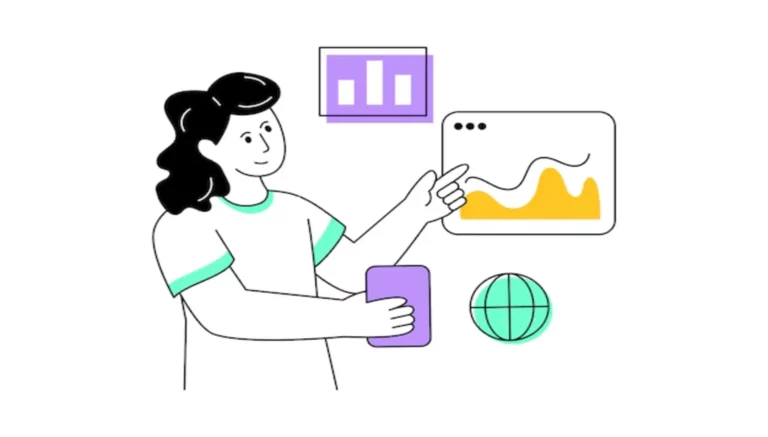
Technology has transformed the way students learn n their academics. From smart time management to powerful study aids and collaborative tools, there’s a wealth of tech-savvy hacks waiting for you. In this comprehensive guide, we’ll unveil the top technology hacks that will boost your productivity and turn studying into an enjoyable exercise. Let’s dive right in!
Time Management Hacks
Time management is the key to balancing your academic commitments and personal life. With a lot of classes, assignments, and extracurricular activities, it’s easy to feel overwhelmed. Thankfully, technology comes to the rescue with a variety of tools and apps that can help you stay on top of your schedule.
Using Calendar and Scheduling Apps
Gone are the days of scribbling important dates and deadlines in a physical planner. Use digital calendars and scheduling apps to organize your life effortlessly. Platforms like Google Calendar or Microsoft Outlook allow you to set reminders, color-code events, and sync your schedule across multiple devices. Stay in control and never miss an assignment or meeting again!
The Power of the Pomodoro Technique
The Pomodoro technique is a time management method that helps you maintain focus and avoid burnout. The concept is simple: work for 25 minutes and then take a 5-minute break. After completing four cycles, take a longer break. Numerous apps, such as Focus Booster and Pomodone, automate this technique, ensuring you make the most of your study sessions. By breaking your study time into intervals, you can optimize your productivity while preventing mental fatigue.
Task Management Tools for Organizing
Staying organized is crucial for effective time management. Task management tools like Todoist or Trello can help you create to-do lists, categorize tasks, and track their progress. These apps make it easier to break down complex projects into manageable steps, keeping you motivated and in control of your academic responsibilities. With features like due-date reminders and collaborative task-sharing, you can collaborate with classmates or group members efficiently, ensuring everyone stays on the same page.
Note-Taking Hacks
Taking comprehensive and organized notes is an essential skill for academic success. Thankfully, technology offers innovative solutions to enhance your note-taking experience and streamline your study process.
Leverage Digital Note-Taking Apps
Bid farewell to bulky notebooks with digital note-taking apps such as Evernote or OneNote. These applications offer seamless organization, allowing you to categorize notes by subject, topic, or date. Moreover, they come with powerful search functions, enabling you to find specific information with just a few keystrokes. The ability to add images, audio recordings, and web clippings to your notes provides a multi-modal approach to learning, catering to different learning styles.
Voice-to-Text Tools
Sometimes, ideas strike us at the speed of thought, and writing them down can be cumbersome. Voice-to-text tools, like Google Voice Typing or Dragon Dictation, enable you to record your thoughts in real-time, saving you valuable study minutes while keeping your ideas intact. Whether you’re brainstorming ideas for an essay or summarizing complex concepts during a lecture, voice-to-text technology ensures that no valuable insights are lost.
Cloud Storage for Accessibility
Have you ever left your study materials at home and faced a last-minute crisis at school? Cloud storage services like Google Drive or Dropbox act as your academic vault, ensuring you have access to your notes, assignments, and study resources from any device with an internet connection. The convenience of cloud storage also allows you to collaborate with peers effortlessly, making group projects and study sessions more efficient and convenient.
Study Tools and Resources
Technology opens doors to a wide array of study tools and resources that can enrich your learning experience and help you grasp complex concepts more effectively.
Use Educational Websites and Online Courses
The internet is a treasure trove of educational content waiting to be explored. Websites like Khan Academy, Coursera, and TED-Ed offer a diverse range of courses and lectures on various subjects. These resources can complement your classroom learning and provide alternative explanations for challenging topics. Additionally, many of these platforms offer interactive quizzes and assessments to test your understanding and track your progress, making learning engaging and self-paced.
Maximizing Interactive Study Aids
Engaging with interactive study aids enhances your retention and understanding of academic material. Flashcard apps like Anki or Quizlet allow you to create and review personalized flashcards, while quiz apps such as Kahoot or Quizizz turn learning into a fun and competitive experience with classmates. By gamifying the learning process, these tools make studying enjoyable and promote long-term memory retention.
Accessing E-book Readers and Digital Libraries
Carrying heavy textbooks can be burdensome, but technology has lightened the load with e-book readers like Kindle or Nook. E-books offer portability and convenience, making it easier to access required reading materials wherever you go. Additionally, digital libraries provide an extensive collection of academic resources at your fingertips. With the ability to search, highlight, and annotate texts, e-book readers empower you to interact with the content actively and streamline your study process.
Collaboration and Communication Hacks
Collaboration is an essential aspect of the modern learning environment. Whether you’re working on group projects or seeking help from classmates, technology facilitates seamless communication and teamwork.
Engaging in Virtual Group Study
Distance is no longer a barrier to collaboration. Online platforms like Google Meet, Microsoft Teams, or Zoom enable virtual group study sessions, allowing you to brainstorm ideas, share screens, and work on projects together, regardless of your physical location. Scheduling study sessions become more flexible, accommodating everyone’s availability, and encouraging teamwork among students in different locations.
Utilizing Online Communication Tools
When you can’t meet face-to-face with classmates or professors, communication tools like Slack or Discord serve as convenient channels for project discussions, clarifying doubts, and staying connected with your academic community. These platforms provide a casual and interactive environment to engage in academic conversations and seek help from peers or instructors when needed.
Organize Remote Study Sessions with Video Conferencing Apps
In addition to group study sessions, video conferencing apps like Zoom or Webex are ideal for arranging virtual study groups with friends or classmates. Studying together in a virtual environment can boost motivation, promote accountability, and create a supportive network for academic success. Sharing screens during study sessions allows for collaborative problem-solving and discussion of complex topics in real time.
Research and Writing Hacks
Researching and writing papers can be daunting tasks, but technology offers numerous tools to streamline the process and enhance the quality of your work.
Managing Academic Papers with Citation Tools
Keeping track of sources and formatting citations can be time-consuming. Citation management tools like Zotero or Mendeley help you organize your references, generate citations automatically, and create bibliographies with ease. These tools ensure that your academic papers adhere to the required citation styles, saving you from the stress of manual formatting.
Ensuring Originality with Plagiarism Checkers
Maintaining academic integrity is paramount, and plagiarism checkers like Turnitin or Grammarly can help you ensure the originality of your work. These tools scan your papers for any instances of unintentional plagiarism, allowing you to make necessary citations or revisions before submitting your assignments. A well-written paper is a reflection of your academic prowess. Grammar and editing tools like Grammarly or Hemingway Editor help you refine your writing, correct grammar mistakes, and improve the overall clarity of your work. By using these tools, you can elevate the quality of your assignments and make a lasting impression on your professors.
Time-Saving Tips
Efficiency is the key to maximizing your productivity as a student. Technology offers various time-saving tips and tricks to help you manage your academic workload effectively.
Keyboard Shortcuts and Extensions
Familiarize yourself with keyboard shortcuts and productivity extensions that can significantly speed up your workflow. Learning simple keyboard commands for common tasks like copy, paste, or undo can save valuable seconds in the long run. Additionally, browser extensions like LastPass or Honey can streamline tasks like password management and online shopping, leaving you more time for studying.
Automating Tasks
Automation tools, such as IFTTT or Zapier, allow you to create workflows that automate repetitive tasks. For instance, you can set up a workflow that automatically saves email attachments to a specific folder in your cloud storage or sends reminders for upcoming assignments. By automating mundane tasks, you free up more time to focus on meaningful academic activities.
Accessing Documents On-the-Go
Cloud-based productivity suites like Google Workspace (formerly G Suite) or Microsoft 365 enable you to access your documents, spreadsheets, and presentations from any device with an internet connection. This seamless accessibility ensures you can continue working on your assignments even when you’re away from your primary workspace. Collaboration with peers also becomes more efficient, as multiple users can work simultaneously on the same document.
Device and Data Management
Managing your devices and data is essential to ensure smooth and uninterrupted study sessions.
Backing Up Important Files
Losing your study materials or academic files due to a technical glitch or device failure can be devastating. Regularly back up your important files to a secure cloud storage service to prevent data loss. Services like iCloud, Google Drive, or OneDrive offer ample storage space, ensuring your documents, notes, and assignments are safe and easily retrievable.
Security Tips to Protect Devices
Your devices contain sensitive personal and academic information. Protect your devices with strong passwords, PINs, or biometric authentication. Enable two-factor authentication for added security, making it difficult for unauthorized individuals to access your accounts. Additionally, install reputable antivirus software to safeguard your devices from malware and cyber threats.
Balancing Screen Time with Offline Study
While online learning is convenient, it’s essential to balance screen time with offline study techniques. Take breaks from digital devices and engage in activities like reading physical books, sketching, or practicing mindfulness exercises. Mixing traditional study methods with technology-based approaches allows you to diversify your learning experience and reduce digital fatigue.
Tech Gadgets for Students
The right tech gadgets can enhance your academic journey and make studying more enjoyable. Consider these essential tech devices and accessories for academic success.
Must-Have Tech Devices and Accessories
Invest in a reliable laptop or tablet that suits your study needs and budget. Look for features such as a comfortable keyboard, long battery life, and ample storage. A high-quality pair of noise-canceling headphones can help you concentrate in noisy environments or during virtual lectures. Also, don’t forget to equip yourself with a power bank for on-the-go charging and a sturdy backpack to carry your tech gadgets and study materials.
Budget-Friendly Options for Students
Being a student often means being on a tight budget. Luckily, there are many affordable tech options available. Consider refurbished or older model devices, which can offer excellent performance at a lower cost. You can also buy gadgets and pay in installments. Additionally, check free or discounted software options available through your educational institution to access essential productivity tools without breaking the bank.
Tech Gadgets Tailored to Specific Areas of Study
Different fields of study have unique tech requirements. For STEM students, investing in graphing calculators, 3D printers, or scientific software can be beneficial. Artists and designers may find digital drawing tablets or graphics editing software essential. Language learners can benefit from language learning apps or language translation devices. Tailoring your tech gadgets to your specific area of study can enhance your learning experience and productivity.
Troubleshooting and Tech Support Hacks
Even the most tech-savvy students may encounter occasional technical challenges. Here are some troubleshooting tips and ways to seek tech support.
Quick Fixes for Common Tech Issues
Several tech issues have simple solutions. Restarting your device can resolve many problems, as it clears temporary glitches and resets system settings. Ensure your software and apps are up-to-date, as updates often contain bug fixes and improvements. If you’re experiencing slow internet connectivity, try moving closer to your router or resetting your network settings.
Online Resources and Forums for DIY Tech Problem-Solving
When faced with tech issues, online resources, and forums can be valuable problem-solving tools. Websites like Stack Overflow, Reddit‘s tech support communities, or official support forums for your devices or software can provide solutions from experienced users and tech experts. Remember to search for specific error messages or symptoms to find relevant solutions quickly.
Know When to Seek Professional Tech Support
While DIY troubleshooting can be effective, some issues require professional assistance. If you encounter hardware malfunctions, persistent software problems, or complex network issues, don’t hesitate to seek help from your educational institution’s IT support or reputable tech service centers. Attempting to fix complex problems without expertise may lead to further complications.
Best Practices and Responsible Technology Use
As you embrace technology for academic purposes, adopting responsible technology use is crucial for your well-being and academic success.
Maintaining a Healthy Tech-Life Balance
Spending excessive time on digital devices can negatively impact your physical and mental health. Set boundaries for screen time and allocate time for relaxation, physical activity, and social interactions. Taking regular breaks from technology can rejuvenate your mind and prevent burnout.
Responsible Online Behavior
Be mindful of your digital footprint and practice good digital citizenship. Respect the privacy of others and think critically before sharing personal information online. Engage in constructive online discussions and avoid engaging in cyberbullying or harmful behaviors. Being a responsible digital citizen fosters a positive online community and promotes a safe and respectful learning environment.
Minimize Distractions and Stay Focused
Technology can be a double-edged sword, as it can both aid and distract during study sessions. Use productivity tools like website blockers or focus apps to minimize distractions during study time. Designate a quiet study space, free from noise and interruptions, to help you concentrate better.
As you integrate these tech-savvy strategies into your study routine, remember to strike a balance between using technology effectively and taking time for offline learning experiences. Keep learning!


